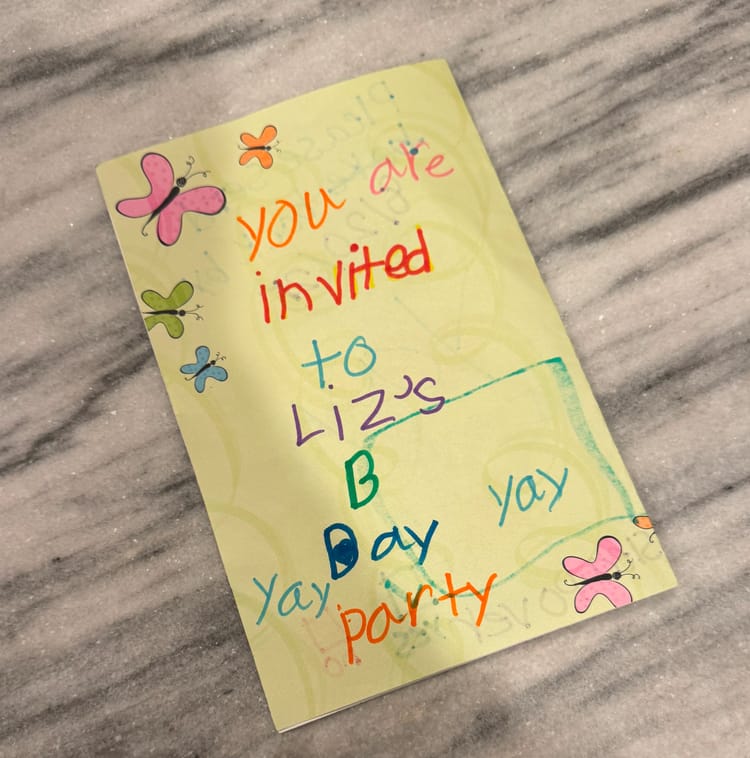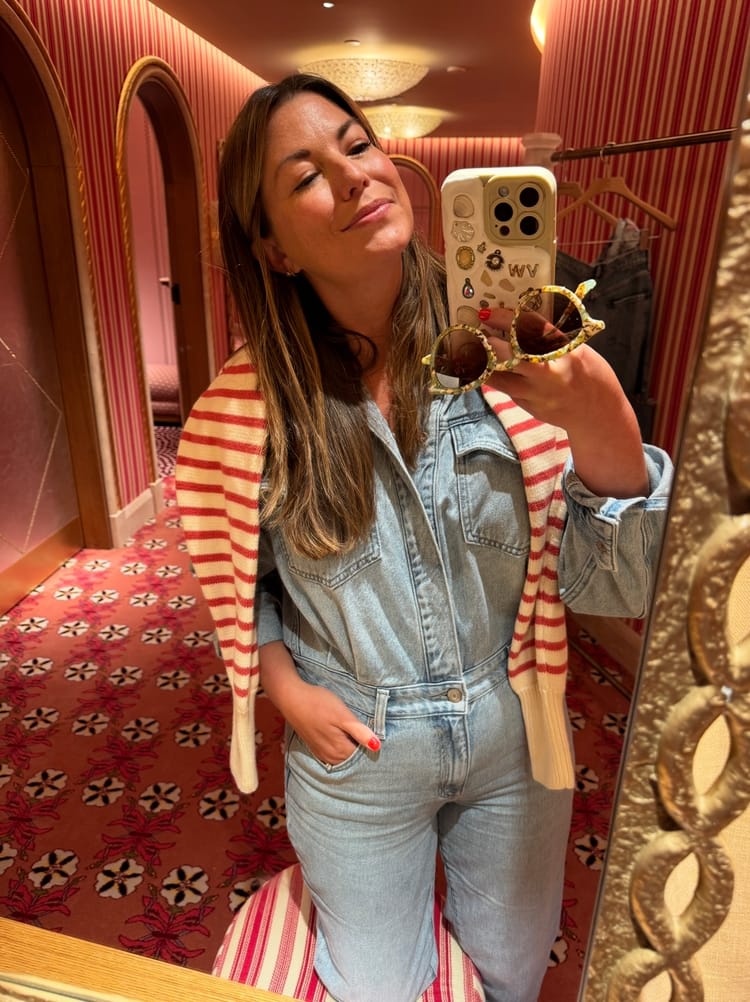Why conspiracy theories will never be my vice of choice

One of the reasons I love having a nicheless newsletter is that I can draw inspiration from so many places for it. Today’s piece comes from a group text on how quickly the conversation around North Carolina shifted from heroic tales of collaboration after Hurricane Helene to very intense, dark conspiracy theories.
Let me start out by saying these are purely my feelings and stance on conspiracy theories. If you enjoy them, believe them, or think they are important and bring value to your life or the lives of others, by all means, go forth. I’ve never gotten any value from judging how other people spend their time or energy, and I’m not starting today.
Thanks for reading victoria winter ! Subscribe for free to receive new posts and support my work.
Back in 2020 (crazy to say, simpler times?!) when the pandemic was first coming to light, my reality felt so thrown off-kilter that I started listening to the chatter about 5G towers and Bill Gates. Honestly, I don’t even remember the plotline at that point, but I do remember the strong feeling I had—a need to grab onto something, anything, to make sense of what, at the time, felt senseless. Once the theories took more extreme turns, like people knocking over cell phone towers, it snapped me out of it. That felt crazier than accepting the reality of a global pandemic. So I dropped it.
But my curiosity about groupthink and how quickly people can rally around certain ideas stuck with me. The way these conspiracy theories crossed demographics—age, socioeconomic background, gender—fascinated me. I started reading up on it, and that’s when I came across the concept of the egregore, which helped things click.
An egregore is a collective energy or consciousness created when a group of people focus their thoughts, emotions, and beliefs on the same idea. It’s like a thought-form that gains power the more people believe in it. The stronger the collective focus, the more real it feels—even if the idea isn’t grounded in reality.
In simpler terms, an egregore is what happens when shared beliefs take on a life of their own. This isn’t a new phenomenon—think of ancient mythology. Stories of gods and monsters explained the unexplainable, providing a way for people to make sense of their world. Even though these myths weren’t “real,” they shaped entire cultures and influenced behavior. Conspiracy theories work in much the same way today.
Let’s take our current situation in NC-for many, the explanation of it being sinister feels more comforting than looking into the role our overconsumption and convenience addictions might play in the natural destruction we’re seeing. The idea of a shadowy force pulling the strings gives the ego something to hold onto, protecting us from the uncomfortable truth that we may be part of the problem.

Conspiracy theories, like ancient myths, help the psyche make sense of the senseless. They act as a defense mechanism against confronting difficult truths. It’s easier to believe in a big bad wolf pulling the wool over our innocent eyes than to acknowledge the impact we, as a society, have had on the environment. An egregore forms when enough people share and reinforce this belief, turning it into something that feels larger than life, something real.
During the pandemic, we saw this play out in real-time with conspiracy theories about 5G towers or Bill Gates. It wasn’t just about the information people were consuming—it was the collective fear and uncertainty that fueled the egregore. When enough people buy into these ideas, they become self-sustaining forces, pulling more people into their orbit. And that’s why it can feel nearly impossible to counter them. It’s not just about presenting facts; it’s about asking someone to let go of a belief that’s emotionally protective and energetically powerful.
I’ll end this how I ended my group text rant: these theories might be 100% valid. But as someone who loves to explore life from as many angles and perspectives as possible, I have to stay rooted in my own principles to avoid getting swept up in the waves. The easiest one to come back to is: “Is this belief system going to make me love my neighbor more?” (Shout out to Jesus for slinging so many simple truths so long ago that are maybe even more relevant today. Although, to be fair, people back then were so thrown by the idea that Jesus would have a close female friend, let alone one he deemed an equal in Mary Magdalene, that they created a conspiracy theory that she was a demon-possessed prostitute. So, yes, they probably needed that message just as much as we do now.)
If the answer is no, I drop it and move on to something that helps me grow in my positivity and see the good in others. As my hero Lynne Twist puts it, I want to be for something, not against.
Since my deep dive into egregores, I haven’t been able to even casually engage with any conspiracy theories. Knowing how powerful they can be—and how easily they can pull you into negativity—isn’t something I want on my “you only get one life so let’s use it for some damn joy and betterment of myself and the world” bingo card. If I’m in need of a vice- I’m happy to stick with my glass of wine over doomscrolling or getting swept away in a fear tsunami. Sure, I might be puffier from the former than the latter, but I think my health is better in the long run. (Again, Beth would like me to note that I am NOT promoting drinking, and the Surgeon General says no amount of alcohol is healthy.)
I empathize with people caught up in current egregores. The world we’re living in is hard to wrap our minds around, and our minds are powerful—they cling to what feels safe. I just wanted to share why I personally don’t engage and offer a perspective rooted in understanding rather than judgment.
LOVE YALL EVEN IF YOU ARE THE PRESIDENT OF Q-ANON, MEAN IT
Victoria
Thanks for reading victoria winter ! Subscribe for free to receive new posts and support my work.





